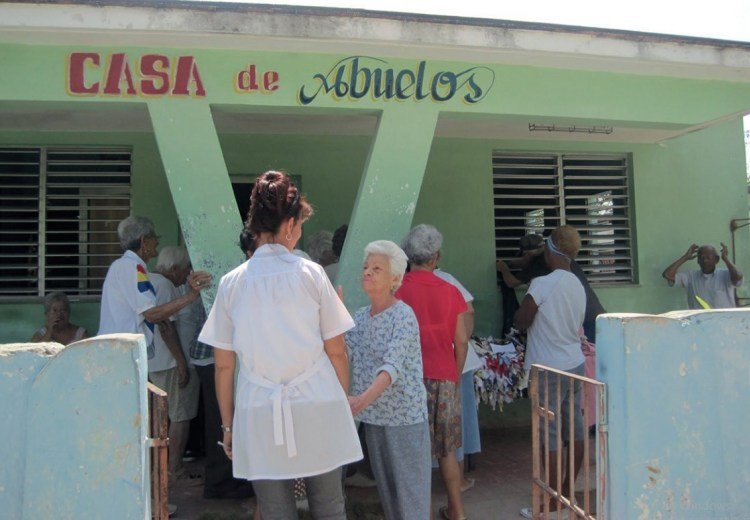As part of the plan for the prevention and control of COVID-19 in Cuba, the island’s Ministry of Public Health (MINSAP) is prioritizing the care of the elderly, considered a population group at high risk for the disease.
This was stated this Tuesday by Dr. Alberto Fernández Seco, head of the Department for the Elderly, Social Assistance and Mental Health of MINSAP, who at a press conference affirmed that his ministry has redoubled preventive measures among those over 60, a population sector that exceeds two million people in Cuba, 20.8% of the Cuban population, and that has aggravating factors such as decreased immune capacity and chronic diseases such as hypertension, diabetes and respiratory disorders.
Fernández Seco explained that there is currently an active investigation among these persons, with an emphasis on those who live alone, who are around 15% of the total. In addition, he said that specific measures have been adopted for the institutions that serve this age group, including nursing homes and grandparents’ homes, of which there are 155 and 293 throughout the country, respectively.
These centers’ workers have been trained to detect suspicious symptoms and daily exams are carried out, both on older adults and on the workers themselves, and the steps to be followed, including medical treatment, in the event of detection of sick persons. Control of passes and visits has also been strengthened, and restrictions have been established to prevent possible contagion.
El Dr. Alberto Fernández Seco, Jefe del Programa Nacional de Atención al Adulto Mayor, Asistencia Social y Salud Mental del #MINSAP explica las medidas de prevención para los adultos mayores, grupo poblacional de mayor riesgo ante la #COVID19 pic.twitter.com/AUlg9flg50
— Ministerio de Salud Pública de Cuba (@MINSAPCuba) March 17, 2020
“This war is won by caring,” said Fernández Seco, who explained that in the case of grandparents’ homes, physical exercises had to be carried out at a distance of two meters, while in the Senior Adult Chairs, in which senior citizens study, the course will continue but not in person.
According to figures on the behavior of the COVID-19 pandemic in the world –that totals more than 190,000 confirmed cases and more than 7,800 deaths–, the fatality of the disease increases among those over 60 years of age and among those who suffer from other chronic conditions, such as diabetes and cardiovascular and respiratory diseases.
Up until this Monday, Cuban authorities had confirmed five cases on the island –three Italians and two Cubans– of which one of the European visitors was in critical condition. In addition, there were more than 300 persons isolated in health institutions, between Cubans and foreigners, both coming from abroad or being in direct contact with travelers in Cuba.










